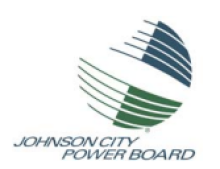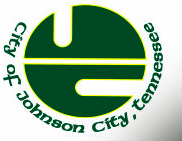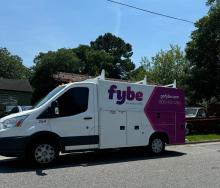By
on

Two years ago, we first wrote about the Johnson City Power Board considering using its fiber-optic network to encourage economic development and create more broadband competition. Last year, we again saw them examining their options, with a recognition that DSL and cable are not enough for economic development when Chattanooga and Bristol are so close by, as well as other publicly owned FTTH networks.
The JCPB has decided to move forward with a public-private partnership approach that will focus first on serving commercial clients and may later expand to offering residential services.
 I have to assume the revenue over 10 years would be more than the capital investment needed to get the project going.
Of course, CenturyLink is pretending that JCPB has no chance of competing against an entity as large as it, but CenturyLink's size may well be one of its biggest problems. It is a giant bureaucracy that provides crummy service at inflated rates. Bristol Virginia Utilities has been crushing it in the small business market because they offer local, reliable services and have the freedom to work with local businesses.
If Johnson City really commits to this, CenturyLink's poor DSL will pose little threat. But Johnson City should take care to listen to the experiences of those around them who went down this path. There are many good lessons for the communities that are willing to listen.
I have to assume the revenue over 10 years would be more than the capital investment needed to get the project going.
Of course, CenturyLink is pretending that JCPB has no chance of competing against an entity as large as it, but CenturyLink's size may well be one of its biggest problems. It is a giant bureaucracy that provides crummy service at inflated rates. Bristol Virginia Utilities has been crushing it in the small business market because they offer local, reliable services and have the freedom to work with local businesses.
If Johnson City really commits to this, CenturyLink's poor DSL will pose little threat. But Johnson City should take care to listen to the experiences of those around them who went down this path. There are many good lessons for the communities that are willing to listen.
The decision on the third-party vendor approach stems from a feasibility study by Kersey Consulting, a firm that offers broadband consulting to municipalities and public utilities. The study began in July, and examined three models the JCPB could use to offer the services: having the JCPB be the retailer; leasing the extra fiber capacity to another company; or bringing in a third-party operator to provide the network access electronics, customer support, billing services, etc. Working with a third-party vendor gives the JCPB the best return on its investment, balancing low risk with possible profits, said JCPB spokesman Robert White. The Power Board would provide the “backbone,” while the vendor, working under JCPB’s brand, would provide the “last mile” services and equipment to the commercial customers.This approach could be somewhat similiar to the Opelika, Alabama, partnership with Knology, except Knology is clearly going after both residential and commercial customers right away. The article uses these numbers, but they don't seem to make a lot of sense to me on first glance:
Initially, according to the feasibility study, the Power Board would most likely make a capital investment of $1.5 million over five years, which could include installing more of a fiber backbone to reach businesses if needed. On the flip side, revenues from the extra service could reach $1.3 million over 10 years, depending on the agreement with the third-party vendor. To reach its revenue and return on investment projections, the JCPB would need to capture about 20 percent of the area’s total market for data services, about 15 percent of the market in phone services, and about 5 percent of private data services over five years, based on a market of 3,000 commercial users.
 I have to assume the revenue over 10 years would be more than the capital investment needed to get the project going.
Of course, CenturyLink is pretending that JCPB has no chance of competing against an entity as large as it, but CenturyLink's size may well be one of its biggest problems. It is a giant bureaucracy that provides crummy service at inflated rates. Bristol Virginia Utilities has been crushing it in the small business market because they offer local, reliable services and have the freedom to work with local businesses.
If Johnson City really commits to this, CenturyLink's poor DSL will pose little threat. But Johnson City should take care to listen to the experiences of those around them who went down this path. There are many good lessons for the communities that are willing to listen.
I have to assume the revenue over 10 years would be more than the capital investment needed to get the project going.
Of course, CenturyLink is pretending that JCPB has no chance of competing against an entity as large as it, but CenturyLink's size may well be one of its biggest problems. It is a giant bureaucracy that provides crummy service at inflated rates. Bristol Virginia Utilities has been crushing it in the small business market because they offer local, reliable services and have the freedom to work with local businesses.
If Johnson City really commits to this, CenturyLink's poor DSL will pose little threat. But Johnson City should take care to listen to the experiences of those around them who went down this path. There are many good lessons for the communities that are willing to listen.






